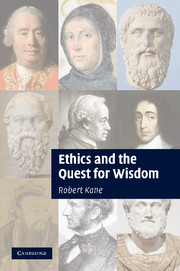Book contents
- Frontmatter
- Contents
- Acknowledgements
- 1 Introduction: pluralism and uncertainty
- 2 Openness
- 3 The retreat
- 4 The moral sphere
- 5 Fact and value
- 6 Value experiments
- 7 Virtues, excellences and forms of life
- 8 The fourth dimension
- 9 Aspiration
- 10 Wisdom
- 11 Objective worth
- 12 The Bach crystals
- 13 Human flourishing
- 14 The Faust legend and the mosaic
- 15 The good and the right (I): intuitionism, Kantianism
- 16 The good and the right (II): utilitarianism, consequentialism
- 17 The good and the right (III): contractualism
- 18 Politics, public morality and law: justice, care and virtue
- References
- Index
7 - Virtues, excellences and forms of life
Published online by Cambridge University Press: 07 September 2010
- Frontmatter
- Contents
- Acknowledgements
- 1 Introduction: pluralism and uncertainty
- 2 Openness
- 3 The retreat
- 4 The moral sphere
- 5 Fact and value
- 6 Value experiments
- 7 Virtues, excellences and forms of life
- 8 The fourth dimension
- 9 Aspiration
- 10 Wisdom
- 11 Objective worth
- 12 The Bach crystals
- 13 Human flourishing
- 14 The Faust legend and the mosaic
- 15 The good and the right (I): intuitionism, Kantianism
- 16 The good and the right (II): utilitarianism, consequentialism
- 17 The good and the right (III): contractualism
- 18 Politics, public morality and law: justice, care and virtue
- References
- Index
Summary
THE THIRD DIMENSION OF VALUE
When we turn to a third dimension of value, we find that it includes the other two, but transcends and can override both. In the third dimension, activities and experiences are not merely viewed practically in terms of what we get from them – but more importantly, in terms of how they define what we are. In this dimension, the hunter in a primitive tribe does not merely hunt for food (a second-dimensional concern), but takes pride in his skill with the bow because of what it says about his standing as a human being. The activity signifies that he is an excellent archer, a good provider for his family and a loyal member of his tribe. It defines what he is and his status in the world and in the community of which he is a part. We may say in general that the value of activities and experiences in this third dimension derives from their role in “forms of life” (to use Wittgenstein's expression) which give them meaning or significance; and it involves the pursuit of various virtues or excellences characteristic of those forms of life.
The third dimension of value thus includes what Charles Taylor (1982) calls “strong evaluations” (those that define our ideals rather than merely our interests) and also what Alasdair MacIntyre (1981: 187) has called the values embodied in “practices” and “traditions.
- Type
- Chapter
- Information
- Ethics and the Quest for Wisdom , pp. 86 - 94Publisher: Cambridge University PressPrint publication year: 2010



